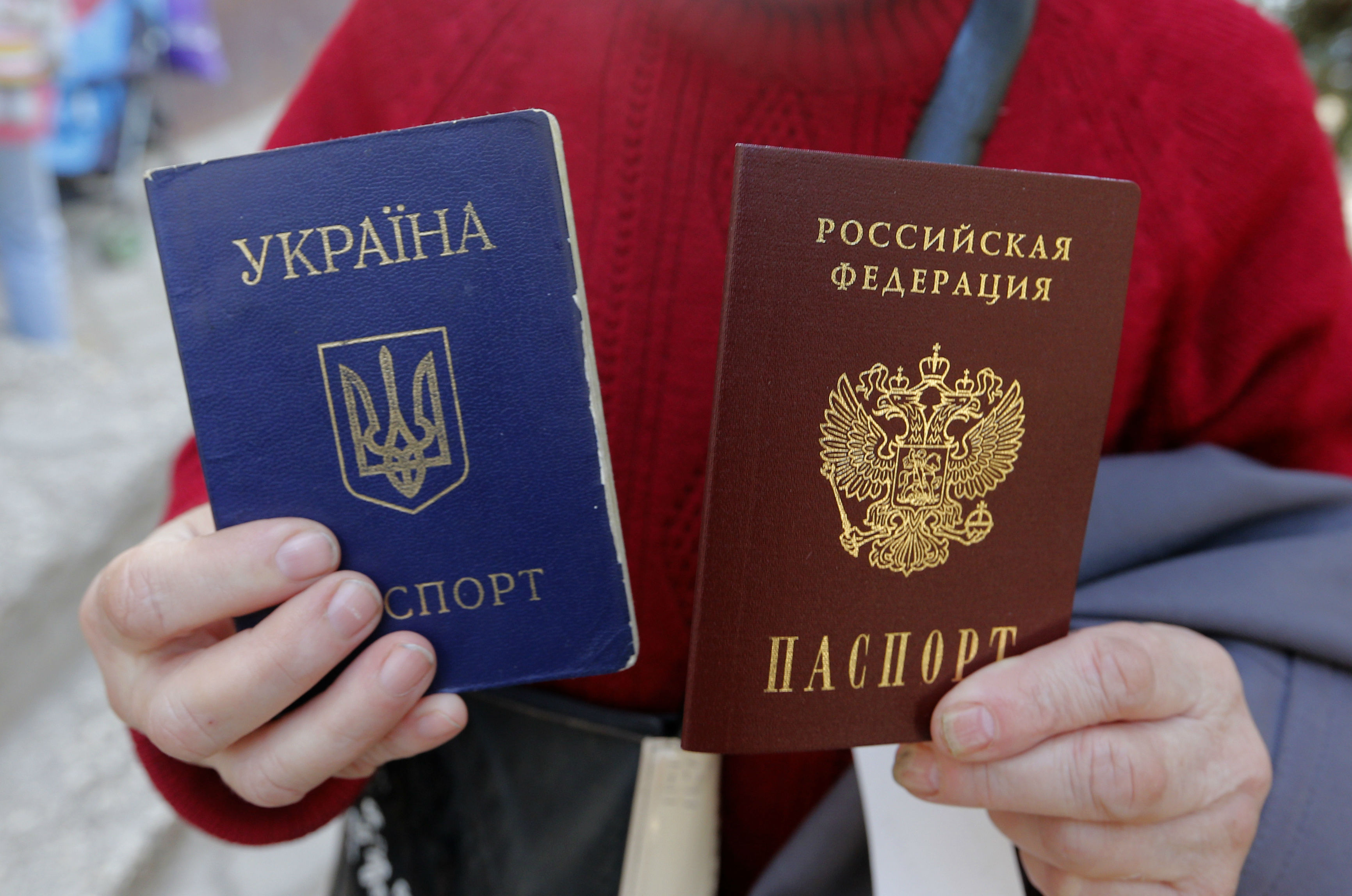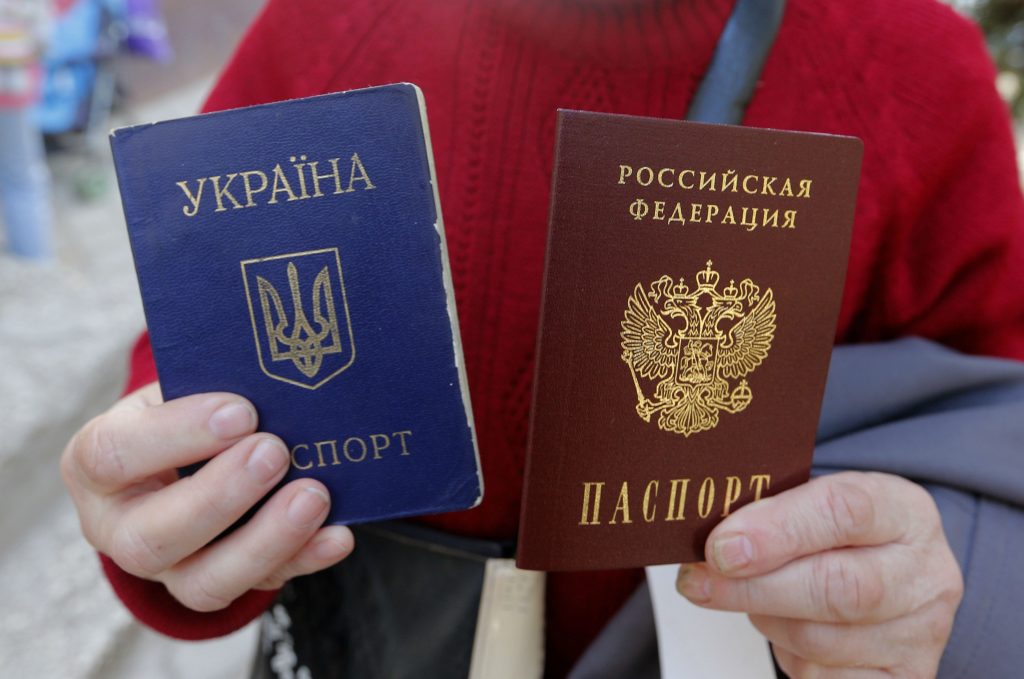 It is ironic that Diane Francis views my characterizations of the Crimea annexation as touting the Kremlin line. Everything I’ve written about the Russian takeover of Crimea, from this March 2014 column comparing it with the Anschluss, to the October 4 column that displeased Francis, could land me in jail in Russia. Crimean Tatar activist Rafis Kashapov was sentenced to two years’ imprisonment in 2015 for denying, as I consistently do, that Crimea is part of Russia.
It is ironic that Diane Francis views my characterizations of the Crimea annexation as touting the Kremlin line. Everything I’ve written about the Russian takeover of Crimea, from this March 2014 column comparing it with the Anschluss, to the October 4 column that displeased Francis, could land me in jail in Russia. Crimean Tatar activist Rafis Kashapov was sentenced to two years’ imprisonment in 2015 for denying, as I consistently do, that Crimea is part of Russia.
I acquired the freedom to write these columns by leaving my country. That was no small price to pay, so I’m disinclined to waste that freedom on the sloppy treatment of facts, which are often inconvenient to both sides of a conflict.
Francis claims that I report the official results of the referendum as fact, ignoring that “such figures were disputed by a report posted on a Russian government website… which said the voter turnout was a maximum of 30 percent and of these, only half voted for annexation, meaning only 15 percent of Crimean citizens voted to join Russia. The report was taken down quickly after it was posted.” As I pointed out, the official results are as meaningless as those of the Catalan referendum because both votes were held without genuine voter rolls. That is not a “disinformation technique,” as Francis claims, but a statement of fact. The report Francis refers to can still be found on the website of the Russian president’s Human Rights Council. It’s a trip report by one of the council’s members, Yevgeny Bobrov. He quoted unidentified local sources who told him that the turnout reached “50 percent to 80 percent” in Sevastopol and “30 to 50 percent” in the rest of Crimea, with “an overwhelming majority” in Sevastopol and “50 to 60 percent” elsewhere voting for Crimea’s incorporation into Russia.
That these estimate ranges are so wide supports one of the points I made in my column: We have no clear idea of the extent of public support for secession in Crimea or Catalonia. Such illegitimate votes as those held there obscure rather than clarify true public opinion.
As in Catalonia, however, there were a significant number of pro-secession locals in Crimea. Their support, as well as the well-documented weakness of the Ukrainian government and its confused response to the Russian aggression, explains why Russia was able to take over Crimea with fewer casualties than it took for the Yanukovych government in Kyiv to fall in February 2014.
Using broad brushstrokes, Francis writes that ahead of the illegitimate March 16 referendum, Crimea’s “institutions had just been occupied, its federal government was being dismembered by the Russian military, opponents were murdered, its local press was shut down, and its populace was intimidated by the presence of soldiers with Kalashnikovs on every street corner.” Russian troops without insignia did occupy some local government buildings. They assisted local pro-Russian politicians in taking control of the government and helped them crackdown on pro-Ukrainian local TV (though not on Ukrainian internet media, which remained widely accessible during annexation). It is unclear, though, whether the Russian troops or local “self-defense” gangs intimidated many voters. These forces weren’t present at polling stations. And even the brutal murder of pro-Ukrainian activist Reshat Ametov failed to intimidate fellow Crimean Tatars, who took a courageous stand against the “referendum” by announcing a boycott. Most of the Tatar community openly observed the boycott.
“Crimea was conquered. Period,” Francis writes. That’s the Ukrainian propaganda line. In reality, anyone who has ever been to Crimea knows that many local residents’ list of grievances against Ukraine was as long as pro-secession Catalans’ list of grievances against Spain. Did the majority share these complaints, both cultural and economic? We don’t know. But ignoring the local support for the Crimean Anschluss is a grave mistake that, if made by policymakers, may complicate the eventual return of Crimea to Ukraine. Locals will need to be convinced to accept such a return; hundreds of thousands are unlikely to welcome it as deliverance despite the harshness of the current Russian regime.
That’s an aside, however. The main point I made was that secession on the basis of an illegitimate vote staged by one side of a divide—such as the ones in Crimea and Catalonia—is only possible if the secessionists command overwhelming force. Russia provided such force to its allies in Crimea. No one can do the same for the Catalan separatists, which makes their own secessionist ambitions unlikely to be satisfied.
Leonid Bershidsky is a columnist at Bloomberg View. He tweets @Bershidsky.
Image: A woman poses with a Ukrainian (L) and a Russian passport outside an office of the Russian Federal Migration Service, where she received a Russian passport, in the Crimean city of Simferopol April 7, 2014. REUTERS/Maxim Shemetov
